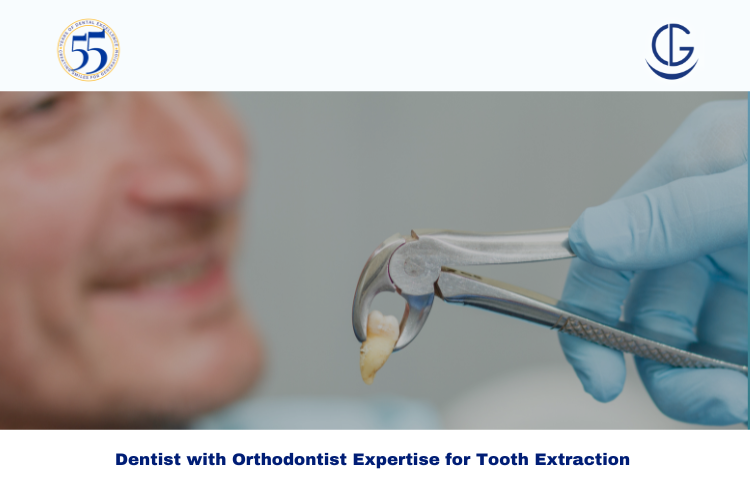Schedule Appointment




When it comes to tooth extraction, many patients are often confused about who is the right professional to consult—a general dentist, an orthodontist, or an oral surgeon. At Dr Gowds Dental Hospital, we often receive questions from patients seeking clarity on this issue. If you’re searching for a dentist with orthodontist expertise, it’s essential to understand the roles of each specialist and when to consult them.
In this guide, we’ll explore the key differences between an orthodontist and an oral surgeon, the situations in which each is involved in tooth extraction, and how to make an informed decision for your oral health.
Before deciding who should perform a tooth extraction, it’s crucial to understand the primary roles of each dental professional.
Many people confuse dentists and orthodontists. Here’s a simple breakdown:
If you’re seeking the best dentist with orthodontist Hyderabad, look for one with experience in planning extractions in alignment with orthodontic treatment. This ensures your teeth move correctly and your bite remains healthy.
An oral surgeon, also known as a maxillofacial surgeon, handles complex extractions, including:
Oral surgeons are highly trained to manage these challenging situations safely, minimizing the risk of complications.
The decision depends on the complexity of your case. Here’s a detailed guide:
If a tooth extraction is part of a braces or orthodontic plan, your orthodontist may be involved in planning the extraction. While they may not perform the surgery themselves, they coordinate with a dentist or oral surgeon to ensure that the removal aligns with your treatment plan.
For teeth that are impacted, severely decayed, or have complicated roots, an oral surgeon is usually the best professional to handle the extraction.
For routine extractions, a general dentist with experience in tooth removal may suffice. However, if the dentist notices complications, they may refer you to an oral surgeon or orthodontist for a coordinated approach.
Choosing the right professional depends on your specific needs:
After any tooth extraction, proper care is essential to prevent complications:
If you experience prolonged pain, swelling, or bleeding, consult a medical professional immediately. Seeking expert advice ensures that any complications are addressed promptly.
In summary, the decision of whether an orthodontist or oral surgeon should extract teeth depends on the complexity of the case. For routine extractions, a dentist may suffice, but for complex or orthodontic-related extractions, consulting the right specialist is crucial. Always prioritize professional guidance, as this ensures optimal healing, alignment, and oral health outcomes.
If you’re in Hyderabad and looking for a dentist with orthodontist expertise, Dr Gowds Dental Hospital offers comprehensive evaluation, treatment planning, and extraction services in a collaborative, patient-focused environment.
Yes, an orthodontist can plan extractions as part of braces treatment. They usually coordinate with a dentist or oral surgeon for the actual procedure.
A dentist handles general oral care, including routine extractions, while an orthodontist specializes in teeth alignment and bite correction, often planning extractions to facilitate orthodontic treatment.
An oral surgeon is the preferred professional for impacted or surgically challenging teeth. They are trained to handle complex extractions safely.
Look for credentials, experience, patient reviews, and clinics like Dr Gowds Dental Hospital, which offer a collaborative approach between dentists and orthodontists.
A dentist with orthodontist expertise ensures that extractions, especially for braces, are planned accurately, reducing the risk of misalignment and complications.